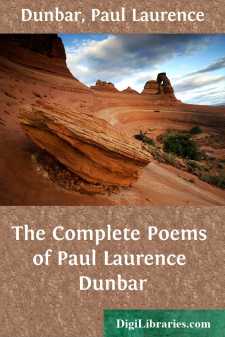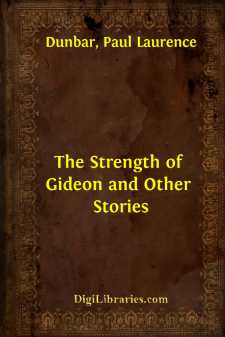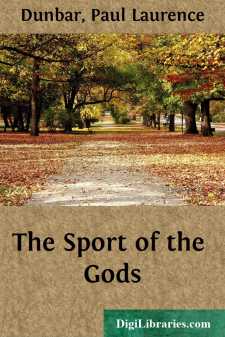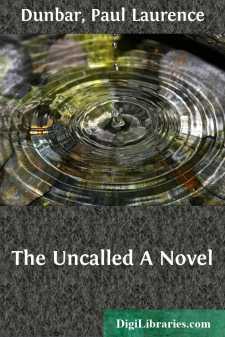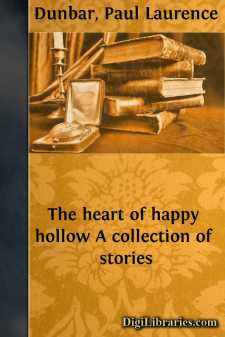Categories
- Antiques & Collectibles 13
- Architecture 36
- Art 48
- Bibles 22
- Biography & Autobiography 813
- Body, Mind & Spirit 142
- Business & Economics 28
- Children's Books 14
- Children's Fiction 11
- Computers 4
- Cooking 94
- Crafts & Hobbies 4
- Drama 346
- Education 46
- Family & Relationships 57
- Fiction 11829
- Games 19
- Gardening 17
- Health & Fitness 34
- History 1377
- House & Home 1
- Humor 147
- Juvenile Fiction 1873
- Juvenile Nonfiction 202
- Language Arts & Disciplines 88
- Law 16
- Literary Collections 686
- Literary Criticism 179
- Mathematics 13
- Medical 41
- Music 40
- Nature 179
- Non-Classifiable 1768
- Performing Arts 7
- Periodicals 1453
- Philosophy 64
- Photography 2
- Poetry 896
- Political Science 203
- Psychology 42
- Reference 154
- Religion 513
- Science 126
- Self-Help 84
- Social Science 81
- Sports & Recreation 34
- Study Aids 3
- Technology & Engineering 59
- Transportation 23
- Travel 463
- True Crime 29
The Complete Poems of Paul Laurence Dunbar
Description:
Excerpt
I think I should scarcely trouble the reader with a special appeal in behalf of this book, if it had not specially appealed to me for reasons apart from the author's race, origin, and condition. The world is too old now, and I find myself too much of its mood, to care for the work of a poet because he is black, because his father and mother were slaves, because he was, before and after he began to write poems, an elevator-boy. These facts would certainly attract me to him as a man, if I knew him to have a literary ambition, but when it came to his literary art, I must judge it irrespective of these facts, and enjoy or endure it for what it was in itself.
It seems to me that this was my experience with the poetry of Paul Laurence Dunbar when I found it in another form, and in justice to him I cannot wish that it should be otherwise with his readers here. Still, it will legitimately interest those who like to know the causes, or, if these may not be known, the sources, of things, to learn that the father and mother of the first poet of his race in our language were negroes without admixture of white blood. The father escaped from slavery in Kentucky to freedom in Canada, while there was still no hope of freedom otherwise; but the mother was freed by the events of the civil war, and came North to Ohio, where their son was born at Dayton, and grew up with such chances and mischances for mental training as everywhere befall the children of the poor. He has told me that his father picked up the trade of a plasterer, and when he had taught himself to read, loved chiefly to read history. The boy's mother shared his passion for literature, with a special love of poetry, and after the father died she struggled on in more than the poverty she had shared with him. She could value the faculty which her son showed first in prose sketches and attempts at fiction, and she was proud of the praise and kindness they won him among the people of the town, where he has never been without the warmest and kindest friends.
In fact from every part of Ohio and from several cities of the adjoining States, there came letters in cordial appreciation of the critical recognition which it was my pleasure no less than my duty to offer Paul Dunbar's work in another place. It seemed to me a happy omen for him that so many people who had known him, or known of him, were glad of a stranger's good word; and it was gratifying to see that at home he was esteemed for the things he had done rather than because as the son of negro slaves he had done them. If a prophet is often without honor in his own country, it surely is nothing against him when he has it. In this case it deprived me of the glory of a discoverer; but that is sometimes a barren joy, and I am always willing to forego it.
What struck me in reading Mr. Dunbar's poetry was what had already struck his friends in Ohio and Indiana, in Kentucky and Illinois. They had felt, as I felt, that however gifted his race had proven itself in music, in oratory, in several of the other arts, here was the first instance of an American negro who had evinced innate distinction in literature. In my criticism of his book I had alleged Dumas in France, and I had forgetfully failed to allege the far greater Pushkin in Russia; but these were both mulattoes, who might have been supposed to derive their qualities from white blood vastly more artistic than ours, and who were the creatures of an environment more favorable to their literary development. So far as I could remember, Paul Dunbar was the only man of pure African blood and of American civilization to feel the negro life aesthetically and express it lyrically....


